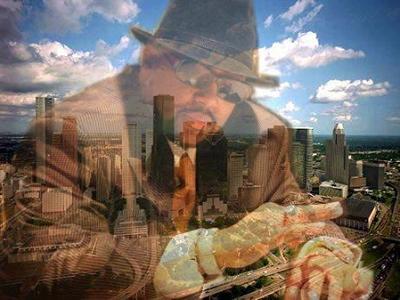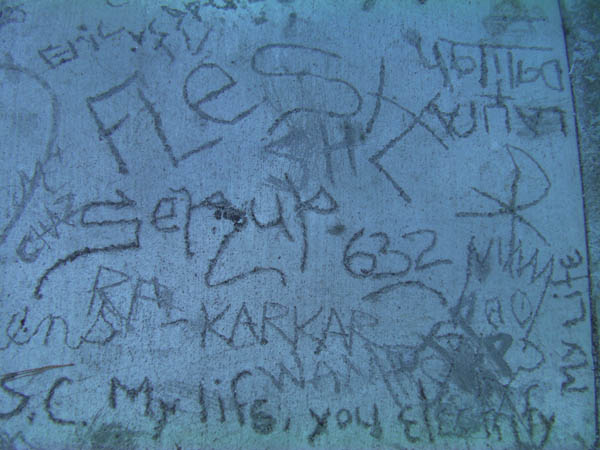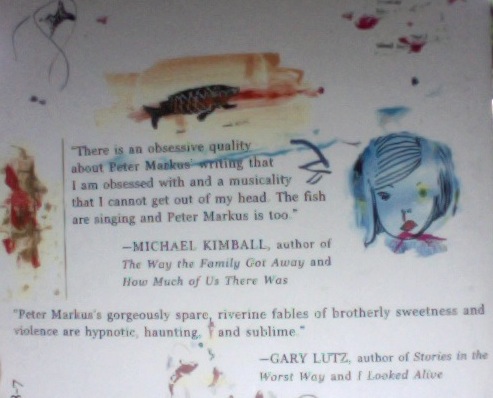Pimp C on Writing

“I got too much cake, plus bitch I’m on parole, plus bitch I pimp dis microphone my mouthpiece is too cold to be stuntin bout some small change, bitch do ya see dis chain, cant ya see I got ya life in my pinky ring?”
“My Stepfather comes to me one day and he say “You know the problem with that rap shit? The problem with that shit is that it’s noise.” So I got defensive, because that’s what we do. “What you mean it’s noise?” He say “Naw… listen to what I’m telling you boy, that shit is noise, ain’t no music in that shit. You put some music in that shit and you might be able to get paid.””
“I never got no training ‘til I went to school. I was playing by ear. I had a drum set and I had the organ and I used to bang out. I learned early on that the white keys was, in my opinion, the “happy” keys and the black keys was the “sad keys.” That’s what I called them. Later on I would describe the black keys as the more funky keys than the white ones. I like minor notes, I like playing in that register, I enjoy the black keys. [But] I feared music at that time so I would stay away from the black keys ‘cause they were sad to me.”
“We didn’t consciously shape a certain sound. When I took a handclap out of my 808 and made it into the snare drum and played the hi-hat double time for the first time and shaped the sound that all these motherfuckers is calling all these different names; crunk an all this other shit, I wasn’t settin out to make no statement. I was trying to make a good record for Master P that day, when I made “Break ‘em off Something.” That’s all we ever set out to do is the best we could do that date and be a little bit better than we was the day before. I figured out a long time ago I couldn’t talk like New York, so I stopped trying to do it and I stopped trying to rap like them. This not an act—this is how I towk. This how we talk down here, some of us got a little deeper accent then others but this how we towk, so I said fuck it we gonna talk like this on a record. We sound different, my voice was high-pitched, I was different than the rest, you know, fuck it.”
“You magazine muthafuckas need to have more responsibility for what you write and put on your goddamn covers. I couldn’t get on a Source cover ’til I went to prison. I had to go to prison to get on the cover of yo funky-ass magazine?”
“I tell the truth even when I lie. I’ll pay a mothafucka to try me, bitch.”
“We didn’t have sense enough to know that they had people called producers that actually make the music, so we made our own music because we didn’t know no better.. Shit we thought everybody made their own beats, ya dig?”
“Every year for Christmas I’d get another piece of equipment – a drum machine, a four track here, a keyboard there.”
“Our thing is this, if it ain’t ready we don’t put it out, we put it on the side and come back to it. Some songs come together real fast, in one or two nights. Some songs take two years. Some take six years. It depends on the song and what’s going on.”
“All y’all niggas talking about selling dope? If y’all niggas was some d-boys, guess what, man? I don’t believe you niggas no more cause I’m seeing you niggas in button up shirts getting cute and pretty trying to look sexy. Nigga, fuck you. Nigga, and I ain’t gotta say your name. Play with me and I’ll expose the niggas that was wearing backpacks with their pant leg rolled up back then in Atlanta when me and Big Meech used to be off in the club kickin’ it buying each other champagne.”
“You aint a gangsta because you platinum or you drive a coupe, truth of the matter you’s a high dollar prostitute. You aint from ATL, you from Macon.”
“What causes a motherfucker to just straight up be a hater on these streets? What causes a motherfucker that you went to school with your whole life to want to shoot you and rob you? Jealous, envy, greed, wicked men, deceitful hearts, females with penises. Bitch ass niggas is what causes this shit.”
“You remember the pictures of Eric B & Rakim? Them niggas was cool motherfuckers. You had to be to get on a record. Just to touch the microphone you had to be a cold motherfucker. Now a person say “rapper” they think of a fugazi motherfucker, a fraud. A motherfucker that lies and talks about shit he ain’t never done. We done let so many fake motherfuckers come into this game and have embraced so much fraud shit and have gave awards and put crowns on so many pussy motherfuckers that to be a rapper now it ain’t even the thing to be. A rapper ain’t no upstanding citizen, a nigga gotta check your credibility.”
“The only nigga I see [in Houston] goin’ to the mall by himself is Slim Thug. Other niggas, when I see ’em, they got bodyguards around ’em. How you gonna be scared of the neighborhood you supposed to be reppin’? All them [Houston rappers] that think they stars, guess what, bitch? Ain’t no stars down here. Only stars is in the muthafuckin’ sky!”
“I want to use my influence to bring some positive things to this game. We’ve done enough tearing down on our own, let’s bring something positive to this shit. Let’s get back to the music instead of all the bickering and arguing about where a motherfucker is from. Just represent your hood to the fullest and everything gonna be alright.”
“See, real niggas don’t swap it out.”
Publishing Gone Wild: Writers? The city is yours!
So, writers, now that TATTOOS are protected speech, what about GRAFFITI? Is GRAFFITI (i.e. nonsense scribbling, political messages, tags, excerpts from your favorite novels, etc.) on public or private surfaces (i.e. walls, sidewalks, garage doors, sides of cars, etc.) protected speech? Why? Why not? If so, then why are we submitting our works to magazines and journals when entire cities lie before us?
Here are some words I saw while walking.

Channeling the Alien-Plath Girl: Emotional Drag/Porn/Excess
I heard Dodie Bellamy use the terms “emotional porn” and “operatic suffering” recently on her blog and I love that. I recently wrote on my blog about “emotional excess” in relation to the films of Andrzej Żuławski, and I’ve just been thinking–I love things that are flamboyantly and unapologetically emotional. It makes me think of teenagers. Since crossing over into my 20s, I look at teenagers and feel kind of embarrassed for them. They lack emotional filters. They’re so direct about their suffering. They’re making themselves look pathetic. But really–I kind of envy them, their lack of restraint. It must be really freeing to be that open without feeling the urge to censor yourself.
When I was in high school, I used to call a certain type of girl a “Plath Girl.” For me, the Plath Girl was white, upper-middle class, educated, a perfectionist, melodramatic, mean, and incapable of feeling joy. I guess I still used this term in college…isn’t that fucked up? This is my therapeutic admission of my fucked-upness. Yes, now I remember. There was a girl I thought was cute and I asked her on a date. She always wore black eyeliner and had a Virginia Woolf tattoo. I thought we could go to the airport and watch the planes take off but she was like, why don’t you just come to my room? When I went to her room, she did lines of coke off her desk while ranting about how much she hated everyone, how depressed she was at school, and before I knew it, she had left me so she could hang with other people. When my friends asked me about the date, I think I just said, “turns out she’s quite the Plath Girl.” (But was this an incorrect categorization? Did the tattoo mean she was actually a Woolf Girl?) Really, I think the Plath Girl is kind of sexy. She has direct access to her emotions and isn’t ashamed to show her bitterness or depression. (I am also involuntarily turned on by emotionally volatile people that can sometimes be cold to me. Perhaps it is a masochistic impulse.) There is certainly a performative element that pervades this kind of outward display of emotion, but that doesn’t mean it’s just some stupid act.
Bill Evans On Writing
“It bugs me when people try to analyze jazz as an intellectual theorem. It’s not. It’s feeling.”
“Intuition has to lead knowledge, but it can’t be out there alone.” READ MORE >
Seminar in Getting Quickly to the Trouble: First Sentences from Christine Schutt’s Nightwork
 1. She brought him what she had promised, and they did it in his car, on the top floor of the car park, looking down onto the black flat roofs of buildings, and she said, or thought she said, “I like your skin,” when what she really liked was the color of her father’s skin, the mottled white of his arms and the clay color at the roots of the hairs along his arms.
1. She brought him what she had promised, and they did it in his car, on the top floor of the car park, looking down onto the black flat roofs of buildings, and she said, or thought she said, “I like your skin,” when what she really liked was the color of her father’s skin, the mottled white of his arms and the clay color at the roots of the hairs along his arms.
2. I once saw a man hook a walking stick around a woman’s neck.
3. She was out of practice, and he wanted practice, so they started kissing each other, and they called it practicing, this kissing that occused him.
4. I date an old man, a man so old, I am afraid to see what he is like under his clothes. READ MORE >
To Blurb, to Flail, to Fail

The technical definition of blurb is: “A brief descriptive paragraph or note of the contents or character of a book, printed as a commendatory advertisement, on the jacket or wrapper of a newly published book.”
But the first use of the word, in 1914, by G. Burgess, defines blurb as “a flamboyant advertisement; an inspired testimonial.”
Blurbing is its own art. There are people who blurb books in magical ways, paring down an entire book into a few glowing sentences. I can think of quite a few writers who do this with real flair: Joyelle McSweeney, Brian Evenson, Gary Lutz, etc. They make blurbing seem easy, effortless. I call them magicians.
(Not) Today in Class: Two Assignments

Dream a little dream. I dreamed last night that I almost killed two kittens I was keeping in Tupperware. I forgot to give them water.
Next week my students will come to class with dream journals and dream poems in hand. They’ve spent a week remembering their dreams or making up their dreams. They’ll be thinking about dream logic and dreaming about thinking logic. They will want to spend class talking about dreams, and we will because I like talking about my dreams as much as the next dreamer. One of my favorite poems is Berryman’s “Dream Song 14,” though it isn’t very dreamlike:
Life, friends, is boring. We must not say so.
After all, the sky flashes, the great sea yearns,
we ourselves flash and yearn,
and moreover my mother told me as a boy
(repeatingly) “Ever to confess you’re bored
means you have noInner Resources.” I conclude now I have no
inner resources, because I am heavy bored.
Peoples bore me,
literature bores me, especially great literature,
Henry bores me, with his plights & gripes
as bad as Achilles,who loves people and valiant art, which bores me.
And the tranquil hills, & gin, look like a drag
and somehow a dog
has taken itself & its tail considerably away
into the mountains or sea or sky, leaving
behind: me, wag.
Two more of my favorite dream poems, and these follow a straightforwardly beautiful dream-logic, are James Tate’s “All Over the Lot” and Charles Simic’s “Early Evening Algebra.” More poems about dreams and sleep here. Write a matter-of-fact poem about a recent dream you’ve had. Don’t embellish; don’t editorialize. Write it straight.
Last week, as I’ve mentioned, we did Alternate Surfaces in class. Index-as-poem, driving directions-as-poem. These kinds of poems follow a different logic, and while not “dreamlike,” it’s one that doesn’t make immediate “sense” to the eye. Oh, but it’s such a cool way to stretch and tug at perception. You should do this too. Write a poem or story in a new form. Here’s what my students came up with. Poem as:
Padgett Powell gives a little writing advice
This was just posted to Unsaid literary journal’s Facebook. Reposted here in case you don’t do the Facebook. (If you do do the Facebook, you should click on the link: “like” the post, “friend” the journal, &c.) There’s also an interview with Powell in the new issue of the New York Tyrant.
Keep in mind what writing should do:
1) Be alive.
2) Be surprising.
3) Obey tenets of economy, verve, etc.
4) Amount to something (usually, in terms of having “something at stake”).
5) Payoff (i.e., resolve).
Any three of five is worth spoiling paper for. It should be remembered also that:
6) Brave wild failure is applauded.
And that:
7) You should be less comfortable if you’re pretty sure of what you’re writing about.
And that:
8) You should ignore, at all times, all sense of authorial narrative obligations, and, certainly, your own preconceptions and ideas.
This is more preaching than could possibly be salubrious. So, some more: Obey only the logic of immediacy, from word to word. Or, obey only its obverse, the illogic of immediacy, or the logic of inimmediacy, as you prefer.
Writing: the balancing act between self and other, solitude and engagement, me and world
I fell out of blog world for a second. A combination of personal turmoil, relocating to Pittsburgh for a month, and buckling down on my novel has left less room for reaching out to my fellow writers via the internet.
In Pittsburgh, I am doing a writer residency at a punk house. Isn’t that interesting? I think more people that own houses and have a little extra space should do DIY writer residencies. Here, they give you a room to live in for free for a month, and you produce something by the end of your stay. The room has a bed, a desk, clean sheets/blanket, and there is a grocery store just a few steps away. They also have a letterpress studio and the equipment to do perfect binding at the house, so they are always making beautiful DIY books and zines. I’ve only been here for a few days, but already I’ve been immensely productive, averaging about 3,000-3,500 words a day on my novel alone. My head feels clear. And one of my best friends from college lives here, which means I have enough socializing opportunities to feel engaged, satisfied and happy, but not enough to be terribly distracted. Virginia Woolf’s thing about having a room of one’s own is starting to seem true. But I still wonder, are such conditions ideal on a more permanent basis?
Here in Pittsburgh, I am thinking about the conditions under which people are able to write. When are you most productive? I am considering the following factors: free time, personal space, emotional stability, routine, environmental, etc. In Baltimore and Florida, I shared a room with my partner. Right now we are both dedicated artists that don’t have “real” jobs and just work on our projects all day. This is completely different from my life several months ago, when I worked 2 jobs while I was going to school full-time and working on my thesis. While my partner and I are living together, every day we continually have to negotiate how to spend our time, where to work, when and what to eat (who should cook), space (she works best listening to loud music, I can’t focus when loud music is playing), our emotional needs (I feel upset right now, will you put aside your work to talk to me?), sleeping schedules (I will often sneakily get up in the middle of the night to pound out several pages [if I have already taken my ambien, you get this]), etc etc. Rather than seeing this as “bad” for my work because I am quantitatively less productive, I see it as something that indirectly enriches my work because it forces me outside myself, makes me more expansive, forces me to learn how to balance self and other. Plus, we always have the opportunity to bounce ideas off of each other, and since we are hyper-engaged and thoughtful about things, we challenge and move each other in unforeseeable directions.
This balancing act brings me to the next issue I am trying to sort out in my mind. The question of living vs. writing.
READ MORE >
SINGSONGS: An Interview With Mat Sweet/Boduf Songs
 New feature? Maybe. I have been thinking about doing some interviews with musicians about the way they approach what they do, informed by my approach to writing.
New feature? Maybe. I have been thinking about doing some interviews with musicians about the way they approach what they do, informed by my approach to writing.
A few years ago, I managed to score a brief gig as a record reviewer for a now defunct print magazine. Which meant for me a few free records. Not much else. Some of them were okay. Many were dull. A record called Lion Devours the Sun by a English singer-songwriter named Mat Sweet remains a regular part of my music rotation. I very likely listen to it—or one of the two follow-up records, How Shadows Chase the Balance and the newest This Alone Above All Else in Spite of Everything—or some of it every week. Which is to say I listen to Boduf Songs every week.
Sweet’s music is quiet, dark, intimate. Alchemical. Occult. Not overly serious, but serious when it needs to be. Pretty. Pretty creepy. READ MORE >


